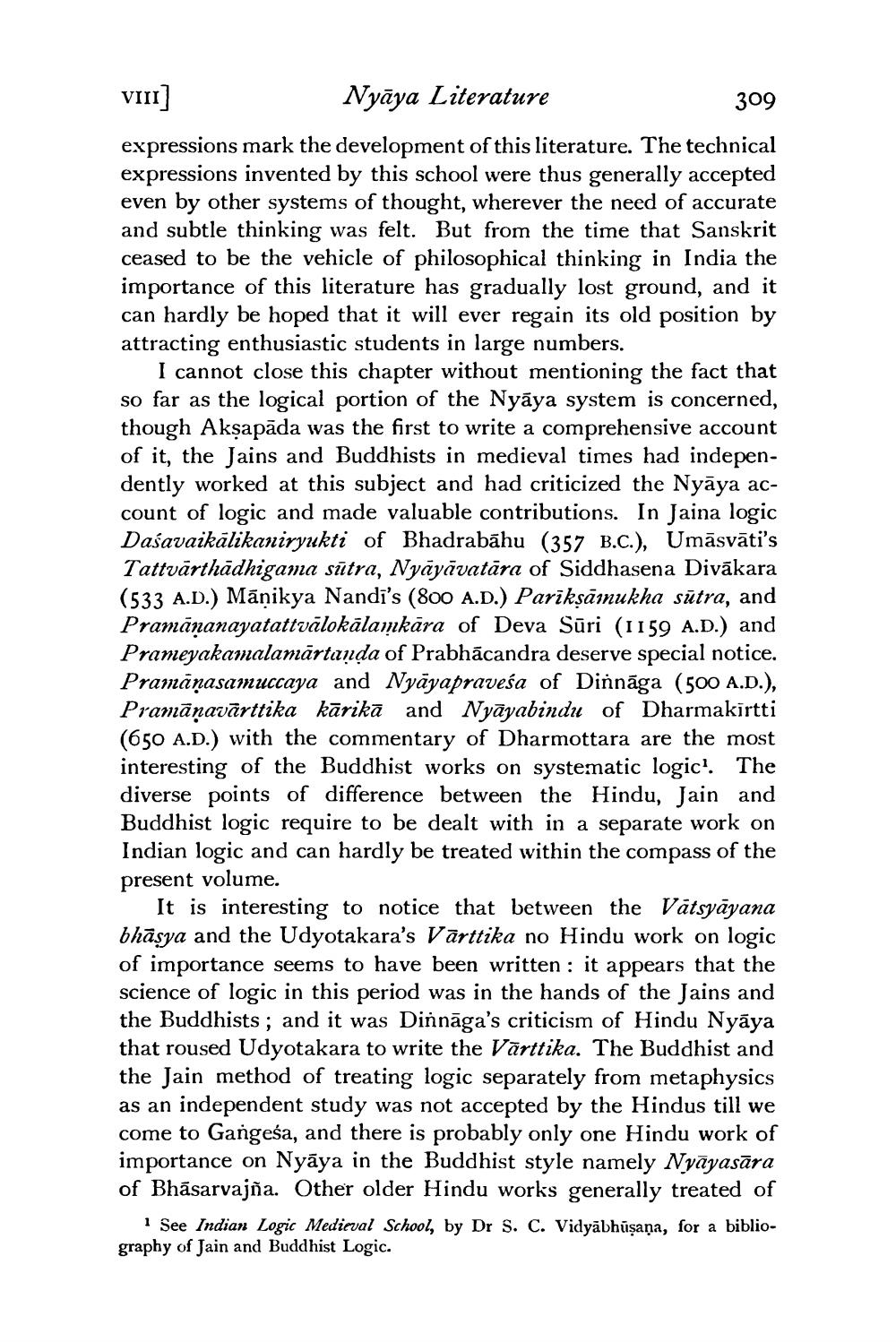________________
VII] Nyāya Literature
309 expressions mark the development of this literature. The technical expressions invented by this school were thus generally accepted even by other systems of thought, wherever the need of accurate and subtle thinking was felt. But from the time that Sanskrit ceased to be the vehicle of philosophical thinking in India the importance of this literature has gradually lost ground, and it can hardly be hoped that it will ever regain its old position by attracting enthusiastic students in large numbers.
I cannot close this chapter without mentioning the fact that so far as the logical portion of the Nyāya system is concerned, though Aksapāda was the first to write a comprehensive account of it, the Jains and Buddhists in medieval times had independently worked at this subject and had criticized the Nyāya account of logic and made valuable contributions. In Jaina logic Daśavaikālikaniryukti of Bhadrabāhu (357 B.C.), Umāsvāti's Tattvārthādhigama sūtra, Nyāyāvatāra of Siddhasena Divākara (533 A.D.) Manikya Nandi's (800 A.D.) Parīksāınukha sūtra, and Pramānanayatattvālokālamkāra of Deva Sūri (1159 A.D.) and Prameyakamalamārtanda of Prabhācandra deserve special notice. Pramāṇasamuccaya and Nyāyapraveśa of Dinnāga (500 A.D.), Pramāņavārttika kārika and Nyāyabindu of Dharmakīrtti (650 A.D.) with the commentary of Dharmottara are the most interesting of the Buddhist works on systematic logic?. The diverse points of difference between the Hindu, Jain and Buddhist logic require to be dealt with in a separate work on Indian logic and can hardly be treated within the compass of the present volume.
It is interesting to notice that between the Vätsyāyana bhāsya and the Udyotakara's Vārttika no Hindu work on logic of importance seems to have been written: it appears that the science of logic in this period was in the hands of the Jains and the Buddhists; and it was Dinnāga's criticism of Hindu Nyāya that roused Udyotakara to write the Varttika. The Buddhist and the Jain method of treating logic separately from metaphysics as an independent study was not accepted by the Hindus till we come to Gangeśa, and there is probably only one Hindu work of importance on Nyāya in the Buddhist style namely Nyāyasāra of Bhāsarvajña. Other older Hindu works generally treated of
I See Indian Logic Medieval School, by Dr S. C. Vidyābhūşaņa, for a bibliography of Jain and Buddhist Logic.




